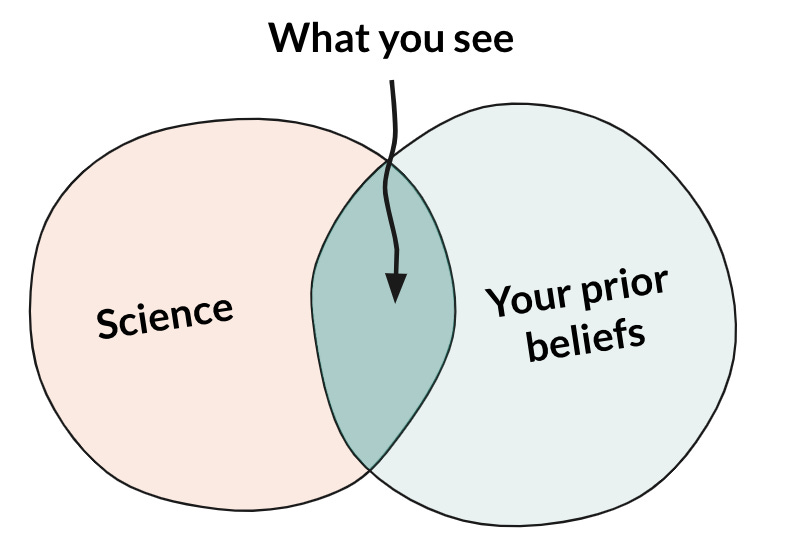Confirmation Bias
Welcome to Love Mondays, a weekly newsletter designed as a 3-minute hit to fire up the other 10,077 minutes of your week. If you haven’t already, be sure you move over to our updated system and we’ll remove you from this list. We don’t want you to miss out on supercharging your Mondays!
Right from Wrong
We know we should pay more attention to our own biases right? But the friction between fact and fiction is that in a world where so much seems to be going wrong, it's a relief to be able to feel right! We gravitate towards people who are likely to believe what we believe. Doesn’t it feel good when others confirm our ideas? Who likes being disagreed with or told that what they believe is way off course?
The answer? Only the bravest parts of ourselves can be told we are wrong, and use it as a learning experience.
What is one strongly held belief you and your team might challenge this week? Write it down.
Consider: how have we validated our strongly held belief?
Practice: seeking out useful alternative facts and bringing them to the team
Decide to: undertake a rapid mapping exercise to understand where beliefs and facts intersect to form confirmation bias
But confirmation bias is so handy!
Adam Grant, an organisational psychologist and Wharton professor said “If there’s no data contradicting your viewpoint, you haven’t looked hard enough”. How we seek new information plays a big role in whether we are looking to rationalise our point of view or genuinely acquire knowledge by examining alternate hypotheses.
When dealing with incomplete or unclear information, do we fill in the missing information with our interpretation of the gaps? How do we choose to manipulate data? Here's some questions we might like to ask our team:
-
Do we examine data that validates our thinking or counters it?
-
Do we see both sides of the data without initial judgement and opinion?
-
Are gaps in information substituted with our knowledge without check for fallibility?
Looking at the data that conforms with your original line of thinking may give us confidence in our decision, but without calibrating the other side of this data, we cannot draw a correct inference. Rather, we are simply giving in to confirmation bias and twisting the data in our favour. What feels good, doesn't necessarily result in good!
We live in a world of abundant knowledge undermined by a plethora of opinions. Let's challenge ourselves to know better, and do better this week.
Love your Mondays

